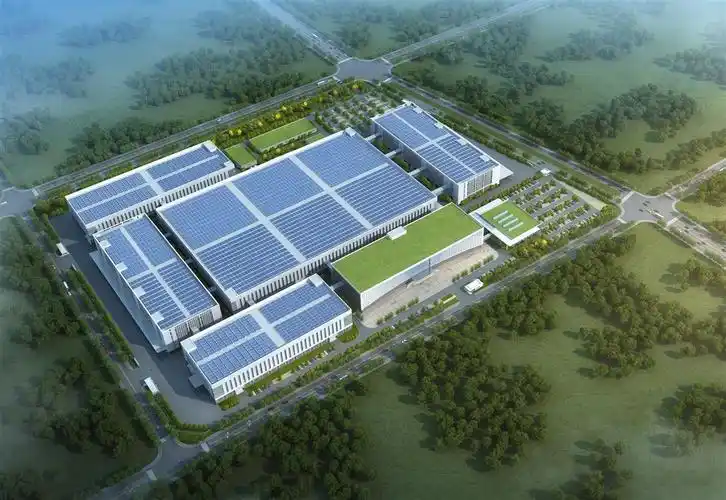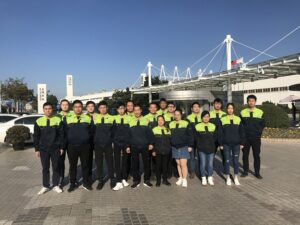Why Do Industrial Plants Need Vibration Isolators?
Uncontrolled industrial vibration damages machinery, shortens lifespan, and disrupts operations. Vibration isolators solve this problem by eliminating harmful resonance and protecting valuable equipment from long-term wear.
Industrial plants need vibration isolators to protect sensitive equipment from excessive vibration and noise. These devices minimize structural damage, reduce maintenance costs, and improve operational efficiency. They are essential for machines like generators, HVAC systems, and pumps, offering tailored solutions through rubber pads, spring isolators, and more.
Let’s explore why isolators are essential—and how to choose the right one for your industrial application.
What is the purpose of vibration isolators?
Vibration isolators are essential components in industrial systems that manage mechanical motion. Their main job is to reduce vibration transmission to surrounding structures.
They protect machines, operators, and nearby systems from damaging oscillations. Without isolators, vibration would travel freely, leading to fatigue and misalignment in critical machinery.
In practice, isolators increase the durability of equipment and stabilize performance in demanding environments like factories, power stations, and processing plants.
What is the purpose of an anti vibration mount?
Anti-vibration mounts—such as vibration isolator pads and rubber isolators—act as cushions between equipment and mounting surfaces.
They isolate low-frequency vibration and reduce shock transmission from smaller machinery like compressors, HVAC units, and light-duty pumps.
These mounts are particularly effective in compact spaces where full-scale isolation systems may be impractical. Their compact design and affordability make them a favorite choice across industries.
Why is a vibration damper necessary?
Vibration dampers reduce the amplitude of motion rather than isolating it altogether. They’re critical in systems where vibration can’t be eliminated but must be controlled.
Dampers work by absorbing vibrational energy and converting it into heat, preventing harmful oscillations from spreading.
In heavy-duty equipment—like stamping machines or rotating engines—vibration dampers help avoid resonance, improve accuracy, and reduce structural stress over time.
What is the function of vibration suppression?
Vibration suppression refers to minimizing the effect of repetitive mechanical oscillation before it causes damage.
While isolators reduce transmission, suppression controls the source itself. It is vital for systems like test benches, anechoic chambers, and transformer bases.
By combining isolation and suppression techniques, manufacturers ensure stability, reduce acoustic noise, and improve overall machine longevity.
What happens if vibration is not controlled?
Uncontrolled vibration leads to rapid wear and tear, fatigue cracks, noise complaints, and high maintenance costs.
In factories, it causes component misalignment, inaccurate measurements, and even structural failure in extreme cases.
For clients like Murtaza, missing a delivery deadline due to equipment breakdown can mean missing peak sales seasons—a costly risk that can be avoided with reliable isolation systems.
What are the types of industrial vibration isolators?
There are several types of industrial vibration isolators:
-
Rubber isolators: Best for light and mid-duty machines, cost-effective and simple.
-
Spring isolators: Handle heavy loads and low-frequency vibration, essential in buildings and large-scale plants.
-
Air spring isolators: Ideal for ultra-precise control, like in labs and electronics manufacturing.
Choosing the right one depends on load, frequency, and application. Tools like spring isolator calculation assist in this selection process.
How to choose the right vibration isolator for industrial use?
Start with evaluating machine weight, vibration frequency, and environmental conditions. Then, select isolators accordingly:
-
For diesel machines, go with a vibration isolator for generator.
-
For ventilation systems, vibration isolators HVAC are the best match.
-
For fluid systems, vibration isolators for pumps are designed to reduce pipe stress and resonance.
Songjiangflex offers free consultation and isolator customization to suit your exact needs.
What are the principles of vibration isolation?
Vibration isolation relies on three principles: mass, stiffness, and damping.
When correctly balanced, these factors allow systems to absorb or redirect vibration energy. This is how spring, rubber, and air isolators prevent motion from traveling into surrounding structures.
Understanding these basics helps in optimizing layout and product selection, especially when designing for sensitive or high-performance machinery.
What are the three main components of a vibration system?
Every vibration system consists of:
-
Excitation Source – the part that generates movement (e.g., motor).
-
Elastic Element – transmits and modifies vibration (e.g., spring or rubber).
-
Damping Element – absorbs excess energy to reduce response.
Industrial isolators are engineered by adjusting these three elements for optimal protection and stability.
What is the purpose of vibration absorbers?
Vibration absorbers are tuned devices designed to counteract specific vibration frequencies, often found in rotating or reciprocating machinery.
Unlike isolators, which block transmission, absorbers neutralize vibration at its source by using a counter-motion.
They’re perfect for precision applications where certain frequencies cause resonance issues. Combined with isolators, they form a complete vibration control strategy.
What is the purpose of vibration monitoring?
Vibration monitoring tracks system health in real-time and prevents unexpected failures.
By measuring frequency and amplitude changes, you can detect bearing wear, imbalance, or misalignment early on.
Smart factories increasingly use this data to schedule predictive maintenance, reduce downtime, and protect high-value assets—especially in mission-critical environments like power plants and cleanrooms.
Summary
Vibration isolators are vital for protecting industrial systems. Choose the right type, apply proper calculations, and combine monitoring for a safer, quieter, and more efficient operation.





